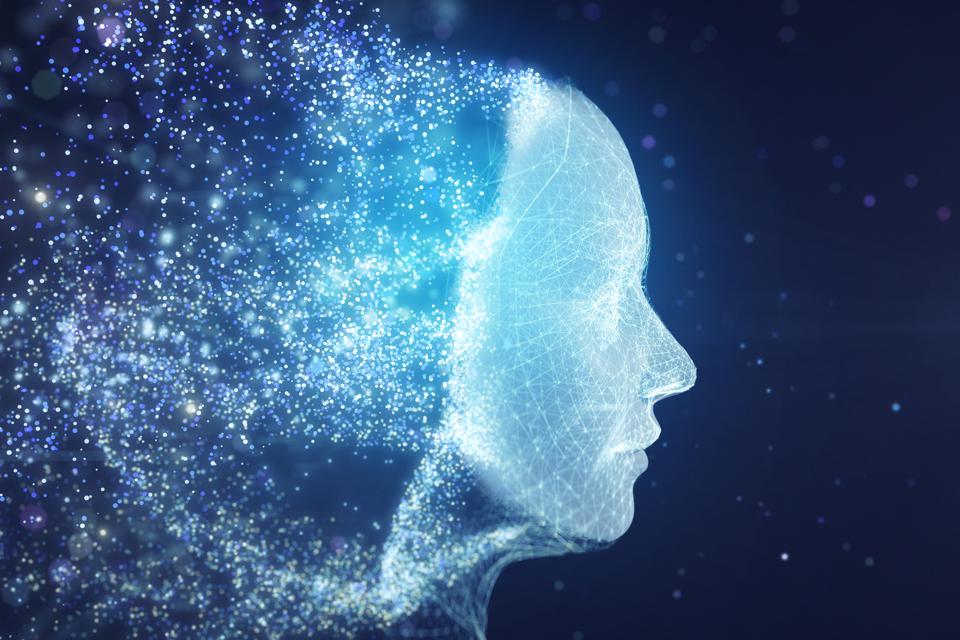@Jody Glidden is the Co-Founder and CEO of Introhive the fastest-growing B2B relationship intelligence service and data management platform.

getty
“It doesn’t look like anything to me.” So goes the classic line from HBO’s dystopian television series Westworld. The show depicts the growing consciousness, and later uprising, of android “hosts” from a western-themed amusement park. The phrase is the series’ proverbial safeword, the recurring host admission that they are not, to the great relief of all Westworld guests, sentient beings.
Westworld is the latest addition in the Hollywood tradition of sinister robots that gain intelligence, gain consciousness and go rogue. Blade Runner, The Terminator, The Matrix, Transcendence, Ex Machina… the list is long and, for many, a clear demonstration of why the full implications of artificial intelligence (AI) might not be worth the convenience it brings.
These Hollywood depictions of AI are entertaining but perpetuate misconceptions about AI in popular culture. “It doesn’t look like anything to me” could just as well describe the vast majority of people’s ignorance about how AI really works and to what extent continued adoption of AI will change business and our world as a whole. Smart homes, smartphones and smart replies are just the beginning of transformation across many different industries. Because of this, it is crucial, now more than ever, to know the basics. Having built businesses in the AI space for years, most recently with AI-integrated platforms, here are a few points worth clearly understanding as business leaders turn to AI.
AI Is Not Automation
The most common misconception about AI is that it is synonymous with automation. In fact, the only shared elements between AI and automation are their reliance on data and their goal of streamlining convenience. To liken AI to automation beyond those commonalities is to ignore the greater elegance of an AI system. While automated systems must be manually configured to execute monotonous, repetitive tasks, AI systems are independently adaptive once they have data to process, meaning that they learn as they go without continuous monitoring. AI leverages aspects of automation, but it goes beyond simple execution of tasks by learning to make decisions on its own, mimicking human behavior.
MORE FOR YOU
AI Is Not The End of Humanity
Many people misrepresent and exaggerate AI’s ability to surpass human intelligence and eventually develop control over human society. Consider Westworld and Smart House as the two poles of the terrifying, comedic Hollywood spectrum. But AI is nothing to fear. Although it can be manipulated by people with ill will, AI doesn’t possess organic, malicious intent of its own. As with any new science or theory, the danger remains with the humans behind these applications, not with the technology itself.
AI Is Only As Powerful As The Data You Give It
AI is a process of collecting information (namely data), sorting it and learning from what is stored, enabling computers to perform tasks that normally require human intelligence. The key is that AI mimics human intelligence. This means there has to be some type of planning, learning, problem-solving, knowledge representation, motion and manipulation, as well as sociable skills and creativity to a lesser extent. Simmering AI down to its fundamental elements is about understanding the importance of data and how we can train machines to synthesize, analyze and act on data as a human being could. Think of AI as an engine fueled by data: It consumes data, recognizes patterns in that data, learns from those patterns and can take action based on those patterns. Just as better fuel quality leads to stronger engine performance on the road, leaders across industries are realizing that having good data is crucial if they want more accurate and insightful AI predictions, which in turn strengthens their business operations.
AI is a collection of continually developing interactions with data. AI spans data integrity and prediction, data science, machine learning and more. It can be seen as both an application of technology and a school of thought — much like physics. Our current Age of AI will transform business operations, medicine, education and our personal lives. And though film and television like to startle audiences with displays of AI gone rogue, the reality of AI simply means a better understanding, improved processes and liberation for the human mind.
Forbes Business Council is the foremost growth and networking organization for business owners and leaders. Do I qualify?
